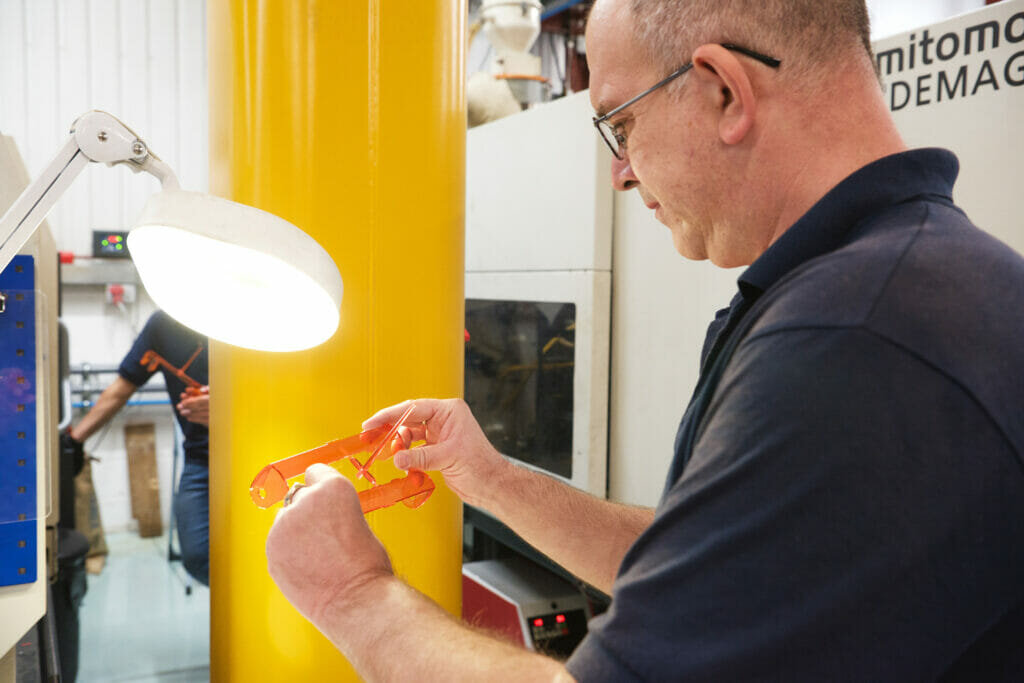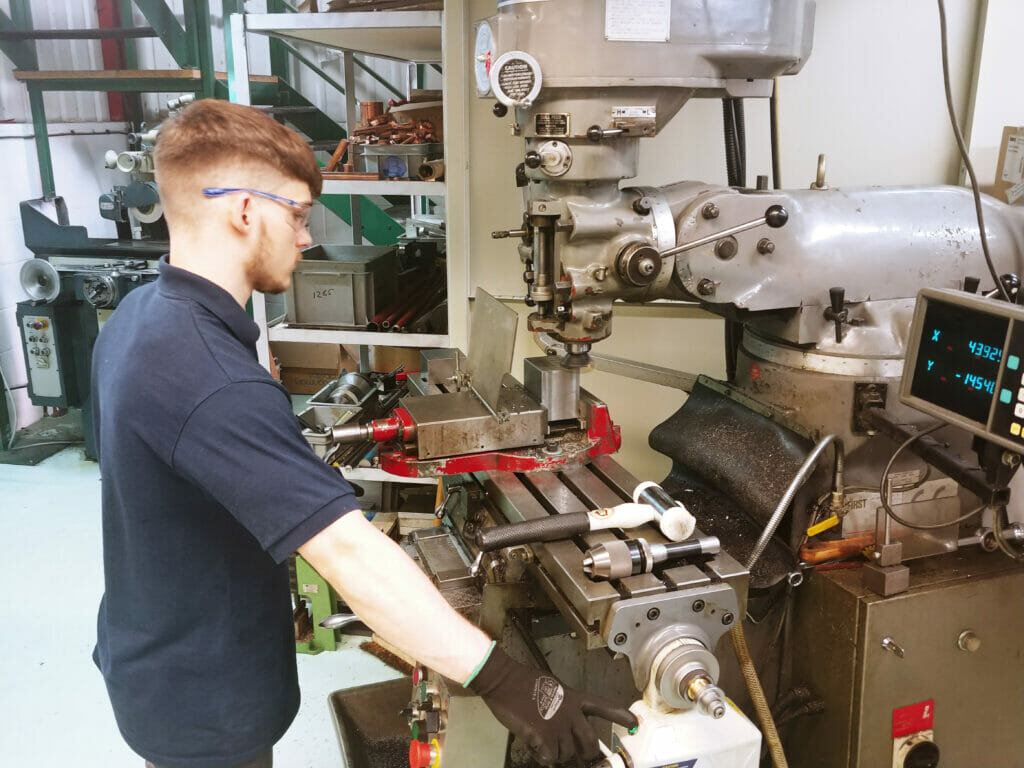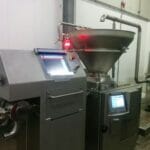Trade wars, closed borders, shipment delays, ongoing tariff negotiations, currency fluctuations and Brexit are just a number of factors prompting UK manufacturers to assess their supply chain vulnerabilities. British moulders have been especially swift during the COVID pandemic to adapt to manufacturers’ urgent PPE and medical equipment demands. Broanmain Plastics included.
Managing Director Jo Davis explains why flexibility, quality control and fast turnaround must now be deemed more important than cost alone and how reshoring production of mass-moulded parts supports British innovation.
Across the manufacturing world, protectionism has become the word of the moment. While the fallout from the crisis is both amplifying familiar manufacturing risks and creating new ones, the reshoring equation is complex. For those assessing their shoring business case and considering switching suppliers to a domestic technical moulder, cost considerations can not be purely about price per part, but the total benefit. Among many things, the value includes labour, locally sourced raw materials, minimum orders, shipment and tariffs, as well as part quality and reject volumes. Additionally, a team with technical and engineering prowess and equipment investment strengthens the rationale to reshore.
In fact, Jo estimates that Broanmain customers that have recently made the decision to reshore production to the UK weighed the benefits up against over 30 criteria.
She explains: “It’s a very different shoring argument to several decades ago. What’s more, our manufacturing world is very different too. The exodus of manufacturing to Asia in the 1990s was primarily driven by low cost labour.
“It is clearly evident that manufacturers today are no longer led on price and labour costs alone. Having the capacity and skills to manufacture on domestic soil, having the space to hold inventory and meet short supply lead times, and quantifying the disruption risks and hidden costs that can accompany managing relationships and quality issues with a supplier located the other side of the world in a different time zone, are all equally important considerations.”
- A team with technical and engineering prowess and equipment investment strengthens the rationale to reshore
- Learning engineering skills, job security and promotional prospects are attractive features for young people contemplating future career pathways
Making the right choice
Jo thinks it’s also shortsighted to assume that COVID is the instigator of this reshoring drive, citing that British companies of all shapes and sizes were assessing their supply chain risks long before the pandemic struck. “Media coverage and medical equipment shortages simply heightened awareness of the vulnerabilities. However, proximity to a component supplier does help equipment manufacturers to monitor and resolve quality and precision challenges more directly, especially when lead times are short. It can also help to resolve red tape import challenges. The fact that COVID highlighted the low quantity of manufacturers in the UK has helped us raise our heads about this problem – but it has also allowed us to showcase our ingenuity and flexibility.”
Many of today’s UK moulders have invested in automation and hi-tech machinery. Having these tools boosts flexibility and fast turnarounds. And it means the tide towards nearshoring is turning. However, Jo believes it would be foolhardy to assume that manufacturers will return ‘en-masse’ in the next six months. Most likely, it will be staged over the next decade. Additionally, manufacturers will be more eager to disperse the geographic risks, selecting firms closer in proximity but not necessarily all in the UK.
Any move of manufacturer does require a good deal of forward planning and assessment of the long-term viability, cautions Jo. For some manufacturers, achieving the optimum mix of manufacturing efficiency and productivity might require a mix of offshoring, reshoring, nearshoring and backshoring.
“Applying our experience supporting a number of customers to bring technical moulding projects closer to home, we would always advise focusing on where you can expand production capacity in the UK initially. In time you might gradually move the entire supply chain. Inevitably, taking a more considered approach builds confidence and ensures that quality is not compromised during the transition,” adds Jo.
Finding your niche
Precision engineering is one of Britain’s strengths. Deployed for high-end applications in the aerospace, medical, electronics, automotive and consumer product sectors, niche manufacturing tends to benefit from an onshore approach. Requiring highly technical capabilities, many of today’s UK polymer moulders have morphed into this space.
“Although we may never revert to the glory days of 50 years ago, the UK precision engineering narrative remains strong,” states Jo. “The shift towards protectionism and societal changes is currently creating the perfect storm for UK engineering.”
A poll early on in the pandemic indicated that 40% believed the UK would have a stronger domestic supply chain after COVID-19. Just over a quarter (26%) agreed that there would be increased adoption of automation and digital tools[1]. Jo concurs that the virus has been a catalyst to instigate a stronger focus on what Britain and Broanmain does best – technical engineering.
“I firmly believe that manufacturers in the future will be more eager than ever to trade off the Made in Britain badge,” claims Jo. “By moving production back to domestic soil, companies are effectively assuring consumers that supply chains will be protected from volatile trade policies and global politics or disasters.”
However, addressing regional skills shortages is increasingly imperative if UK manufacturing is to thrive. Well before coronavirus, polymer manufacturing especially faced serious skills shortages. Yet, precision moulders have been among the few industries to stay open, some around the clock seven days a week to fill the chasm of orders stuck at ports during the height of the crisis. These lessons aren’t lost on Jo, who frames the job security and promotional prospects as two of the most attractive features for young people contemplating their future career pathways.
As a member of the British Plastics Federation’s Education & Skills Committee, concludes: “If polymer engineering firms want to compete on the world stage as serious domestic manufacturers we need to build our talent pool in parallel.”
[1] https://www.theengineer.co.uk/poll-covid19-engineering-impact/










